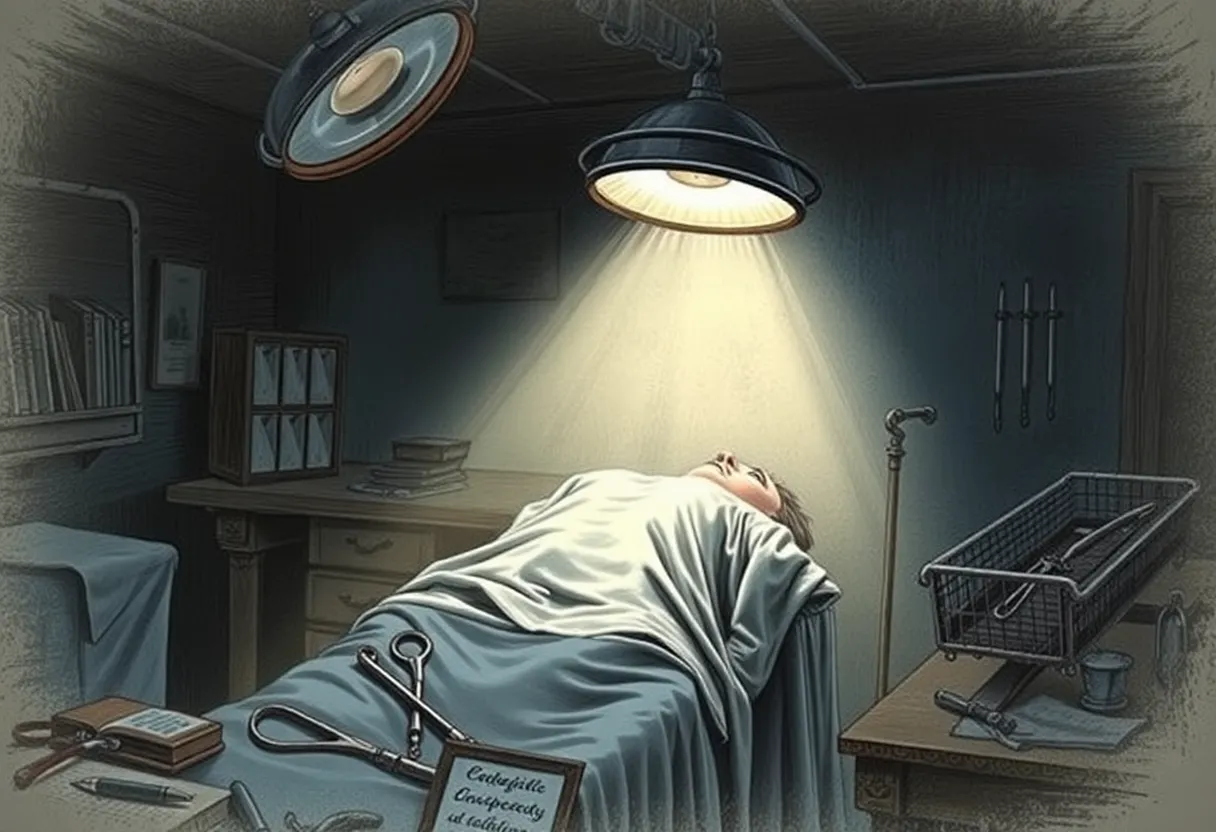News Summary
Frances Burney, an English novelist, underwent a groundbreaking mastectomy in an era without anesthesia after being diagnosed with breast cancer. Her harrowing experience, chronicled in detail, provides insight into the desperation faced by surgical patients before modern pain relief techniques. This surgery highlights the evolution of medical practices and the profound impact anesthesia would have on the field.
London – In a remarkable case of medical history, English novelist Frances Burney underwent a pioneering mastectomy in 1811 at the age of 59 after being diagnosed with breast cancer. This significant surgical procedure was proposed by French doctors as the only viable option to save her life. At that time, surgical anesthesia had not yet been discovered, leaving Burney to face the ordeal without any pain relief, a situation that filled her with profound dread.
On the day of her surgery, Burney’s experience was harrowing. She was blindfolded and restrained by assistants to prevent her from moving during the procedure, as her doctors were aware of the potential for severe panic in such a situation. Once the operation began, Burney was gripped by excruciating pain and reportedly lost consciousness twice due to the intensity of her suffering. Despite this torment, the surgery was successful, and she managed to live for another 29 years, overcoming the dire prognosis that accompanied her diagnosis.
Burney chronicled her surgical experience in vivid detail, providing a firsthand account of the agonizing pain associated with the incision. Medical historians consider her story significant as it underscores the struggles of patients undergoing surgery before the advent of modern anesthesia, which eventually transformed the field of surgery. The first successful use of ether as an anesthetic occurred on October 16, 1846, marking a pivotal moment in medical history. Prior to this breakthrough, surgeries were often performed in desperate circumstances, with patients enduring extreme pain.
Long before the invention of anesthesia, ancient civilizations had experimented with various methods of pain relief. These included opium, herbal remedies, and the application of hypnosis. Persian physician Ibn Sina documented these early techniques, which included the use of a “soporific sponge.” Surgery in ancient Peru relied on methods such as trepanation—drilling holes into the skull—to treat head injuries, highlighting the range of approaches to medical challenges over the years.
As the medical field evolved, the practice of surgery began to change dramatically. Surgeons in the early 19th century, facing the necessity of operating without pain relief, became exceptionally swift in their procedures. Some could perform amputations in as little as 25 seconds, a practice that left little room for error. One notable surgeon, Robert Liston, gained a reputation for his rapid surgical techniques, although one of his operations resulted in an accidental injury to an assistant, ultimately leading to complications and fatalities.
Prior to the widespread acceptance of ether, attempts were made to find alternatives to anesthesia, such as mesmerism or hypnosis. However, these methods failed to gain the same level of recognition or success as ether, which eventually transformed public perception of surgery. The introduction of anesthesia eliminated the fear associated with surgical procedures, allowing more patients to seek necessary care without the overwhelming dread of pain.
Frances Burney’s experience serves as a poignant reminder of the historical struggle against pain in medical procedures before the establishment of anesthesia and germ theory, which would revolutionize surgery in the mid-19th century. As an influential figure in literature and a survivor of a grueling medical procedure, Burney’s legacy continues to shed light on the evolution of surgical practices and patient care throughout history.
Deeper Dive: News & Info About This Topic
HERE Resources
Additional Resources
- Baptist Press: Scopes Trial – A Defining Moment in U.S. History
- Wikipedia: Medical History
- KTVU: Video Report
- Google Search: Medical Advancements
- Billy Penn: Young People’s Continental Congress Philly 2025
- Google Scholar: Anesthesia History
- Vox: Disney’s America – A U.S. History Theme Park that Failed
- Encyclopedia Britannica: Anesthesia
- Washington Post: Largest U.S. Health Care Fraud Bust
- Google News: History of Surgery
Author: STAFF HERE LOS ANGELES WRITER
The LOS ANGELES STAFF WRITER represents the experienced team at HERELosAngeles.com, your go-to source for actionable local news and information in Los Angeles, Los Angeles County, and beyond, specializing in "news you can use" with coverage of product reviews for personal and business needs, local business directories, politics, real estate trends, neighborhood insights, and state news affecting the area—with deep expertise from years of dedicated reporting and strong community input, including local press releases and business updates, while delivering top reporting on high-value events like the Academy Awards, LA Auto Show, and Los Angeles Marathon, extending coverage to key organizations such as the Los Angeles Area Chamber of Commerce and the Los Angeles Tourism & Convention Board, plus leading businesses in entertainment and technology like Warner Bros. and SpaceX, and as part of the broader HERE network including HEREAnaheim.com , HERECostaMesa.com , HEREHuntingtonBeach.com , and HERESantaAna.com , providing comprehensive, credible insights into Southern California's dynamic landscape. HERE Anaheim HERE Beverly Hills HERE Coronado HERE Costa Mesa HERE Hollywood HERE Huntington Beach HERE Long Beach HERE Los Angeles HERE Mission Viejo HERE San Diego HERE Santa Ana





